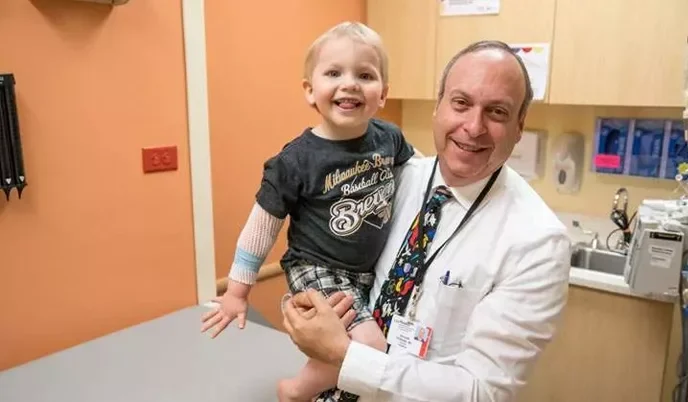
First Successful Bone Marrow Transplant Led to Today’s Immunotherapies
Fifty years ago, School of Medicine and Public Health Professor Fritz Bach (pictured) and University of Minnesota Professor Robert Good performed the first successful bone marrow transplants, made possible by Bach’s earlier research findings. One year later, Paul Sondel, then a young, inquisitive undergraduate student joined Bach’s lab and, with colleagues, has carried the torch to further the field of immunotherapy ever since.
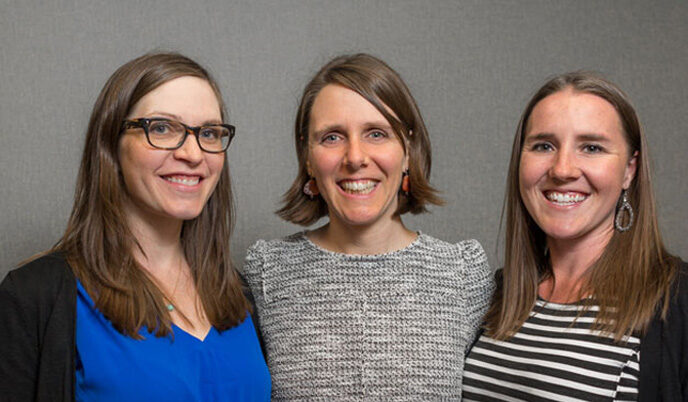
Training in Urban Medicine and Public Health
New leadership and curriculum have bolstered the legacy of the School of Medicine and Health's specialized training program that prepares future doctors to practice in underserved urban areas.

New Center Taking Precision Medicine and Genomics to the Next Level
Stephen Meyn, MD, PhD, recently joined the School of Medicine and Public Health to lead the UW Center for Human Genomics and Precision Medicine. Meyn is developing a strategic vision for the center, guiding the formation of its clinical and academic programs and crafting its long-term mission to become an innovative global leader in genome-based precision medicine.
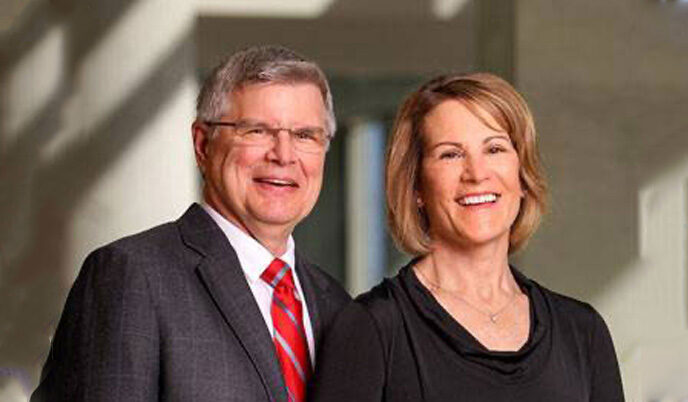
Professorship Bolsters Next Generation of Surgeons
"Someday, these young surgeons may be taking care of us, and we all want great people taking care of us," says Bruce A. Harms, MD, MBA, about the need to support excellence in research, education and patient care in the field of surgery, and particularly colorectal surgery. To that end, he and his wife, Judith, have established a professorship in colorectal surgery.
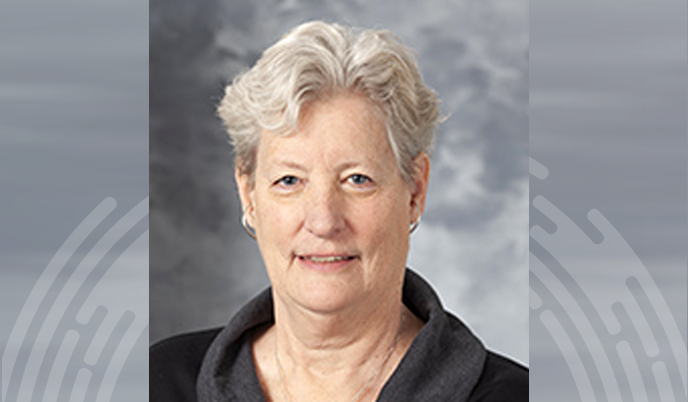
Milestones in Genetic Counseling
In May, the University of Wisconsin School of Medicine and Public Health’s Master of Genetic Counselor Studies program will graduate its 40th class. It’s a major milestone by any standards, even if you consider that UW–Madison’s program was the first in the Midwest and the eighth in the United States.
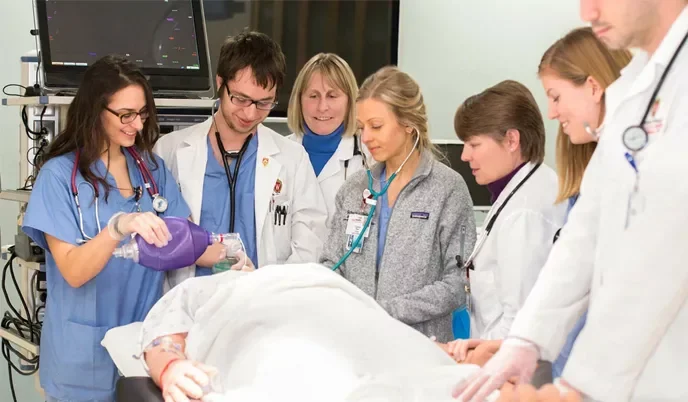
Gundersen Physicians Train, Mentor UW Medical Students
Spend a few minutes talking with physician educators Kyla Lee, MD ’98, and Kimberly Lansing, MD, PhD, and one thing becomes abundantly clear: There is a great deal more to teaching medical students than meets the eye. Based at Gundersen Health System in La Crosse, Wisconsin, they have close ties to the campus in Madison and have been intimately involved in the development and implementation of the school’s new ForWard Curriculum, now in its second year.
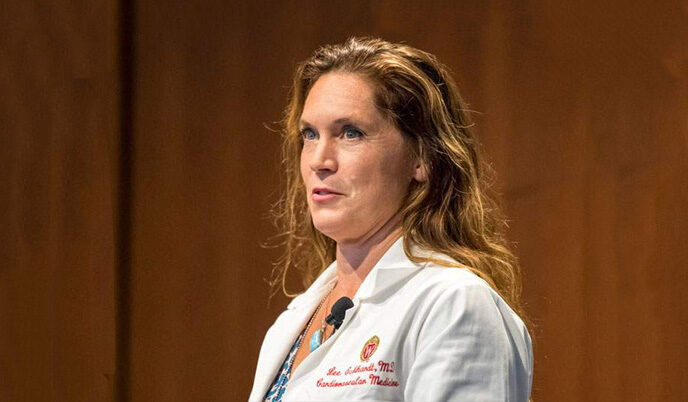
Mini Med School Highlights Progress in Treating Atrial Fibrillation and Arrhythmias
Participants learned how the School of Medicine and Public Health is improving health through innovative research and patient care.

Fundus Focused on Art and Science of Eye’s Inner Landscape
The Fundus Photograph Reading Center specializes in reviewing super-high-resolution photos of the retina for clinical trials related to diabetic retinopathy, diabetic macular edema, macular degeneration, retinal vein occlusion, uveitis, inherited retinal diseases and drug safety trials.

Sleep Researchers Walking Conversations Help Foster Research Breakthroughs
Every morning, sleep researchers Chiara Cirelli, MD, PhD, and Giulio Tononi, MD, PhD, have a routine that is as Italian as they are, and as Wisconsin as their log home in southwestern Dane County.
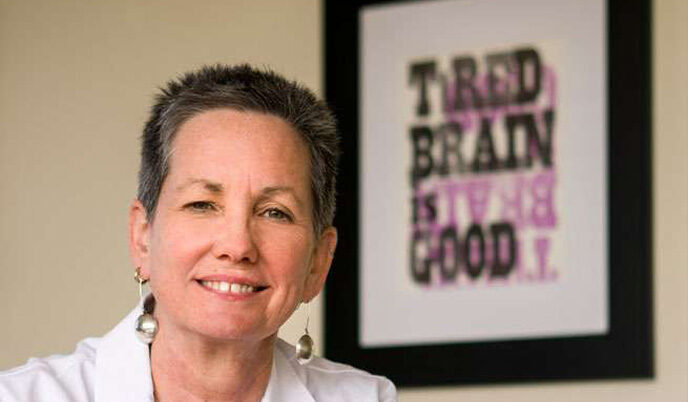
Kathleen Shannon Provides Hope for Patients With Movement Disorders
In her first year as chair of the Department of Neurology, Kathleen Shannon, MD — a movement disorders specialist — has led efforts to earn center of excellence designation from the Huntington’s Disease Society of America for the UW Health Neurology Clinic.
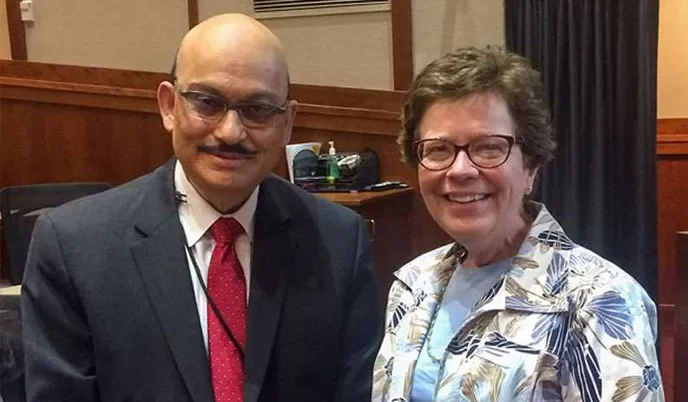
Science of Successful Aging Summit Features Research Advances
The University of Wisconsin School of Medicine and Public Health and Division of Geriatrics and Gerontology, Department of Medicine hosted the Science of Successful Aging Summit: The Aging Brain and Dementia at UW–Madison.
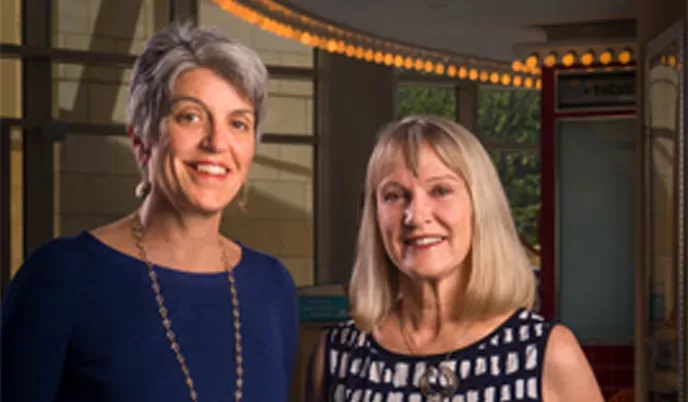
Two Pediatricians Share Non-Traditional Paths to Success
In 1996, Quarterly magazine profiled two University of Wisconsin School of Medicine and Public Health alumni who, in their quests to balance career and family, took an unconventional step: they shared a pediatrics residency at UW Children’s Hospital (now called the American Family Children’s Hospital).